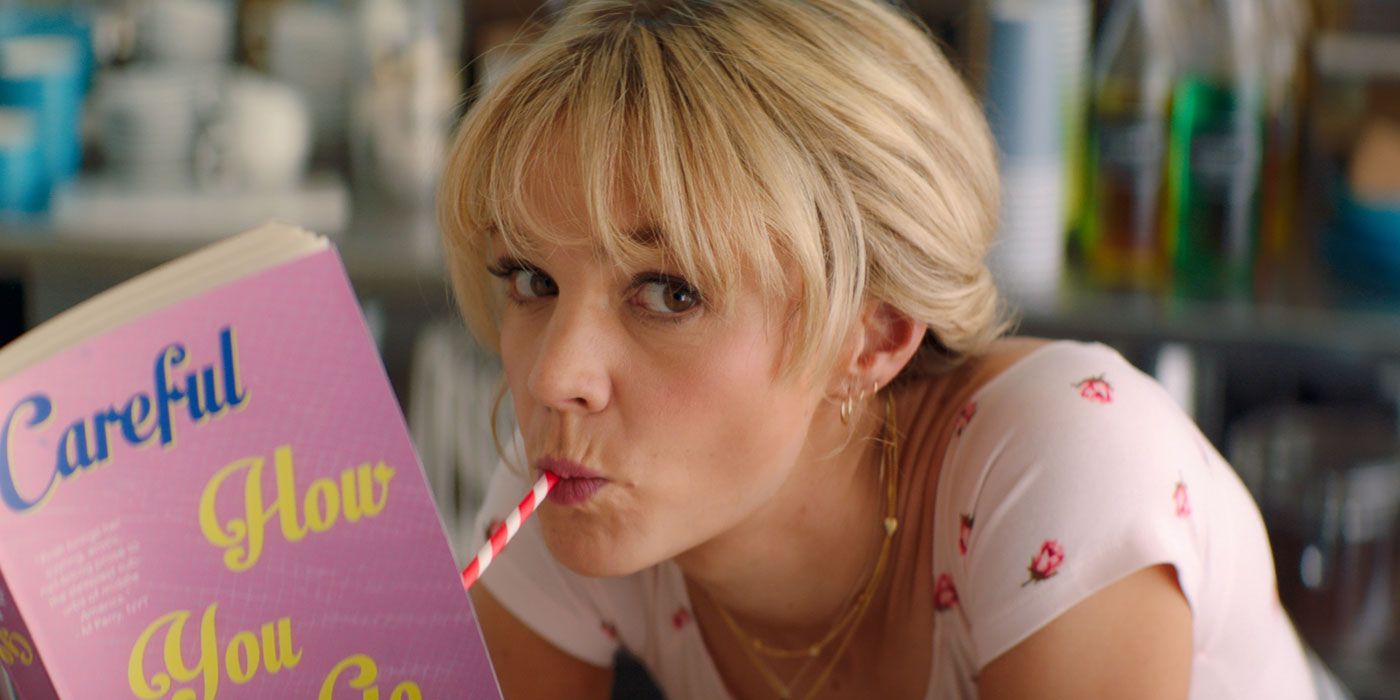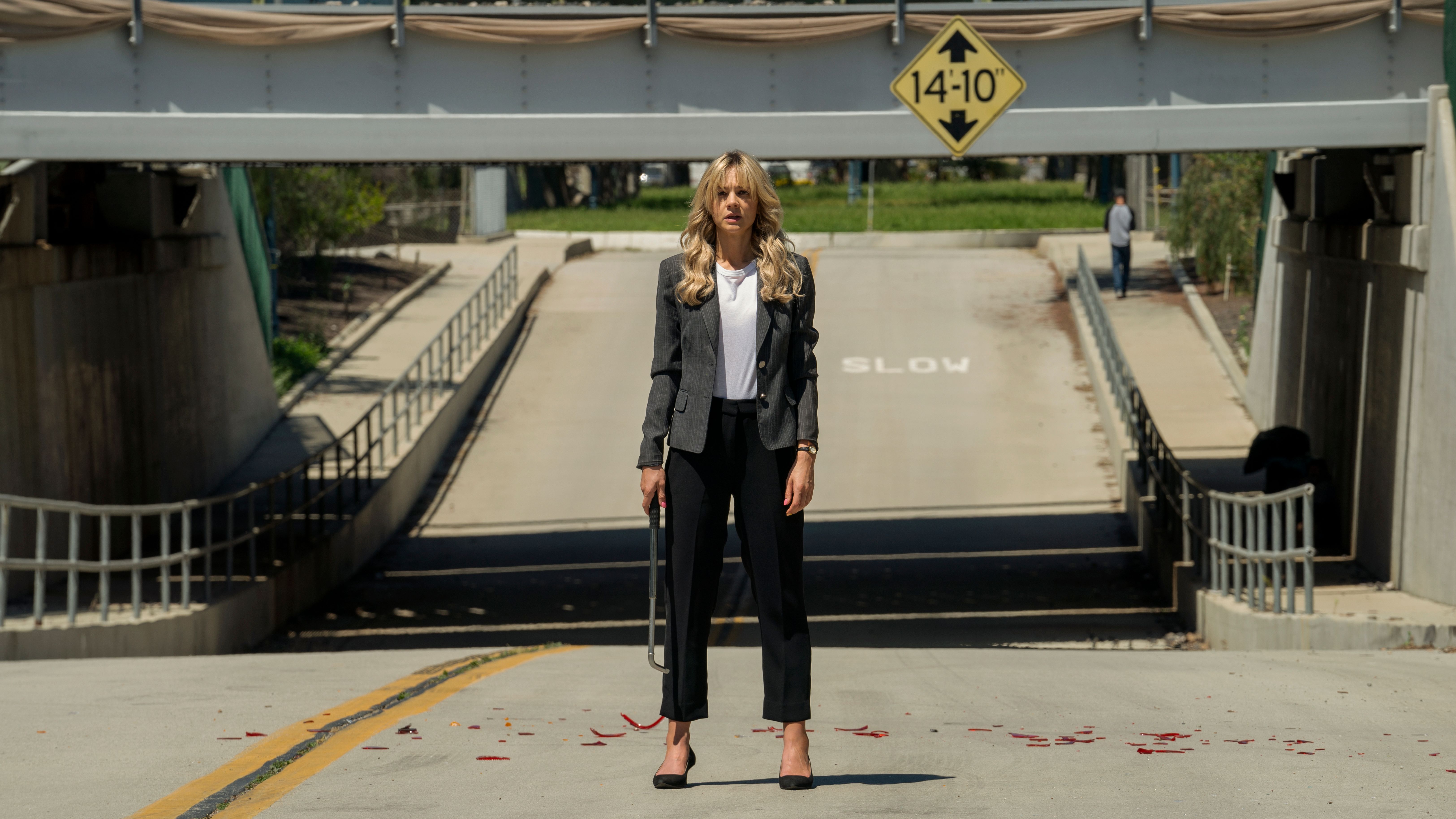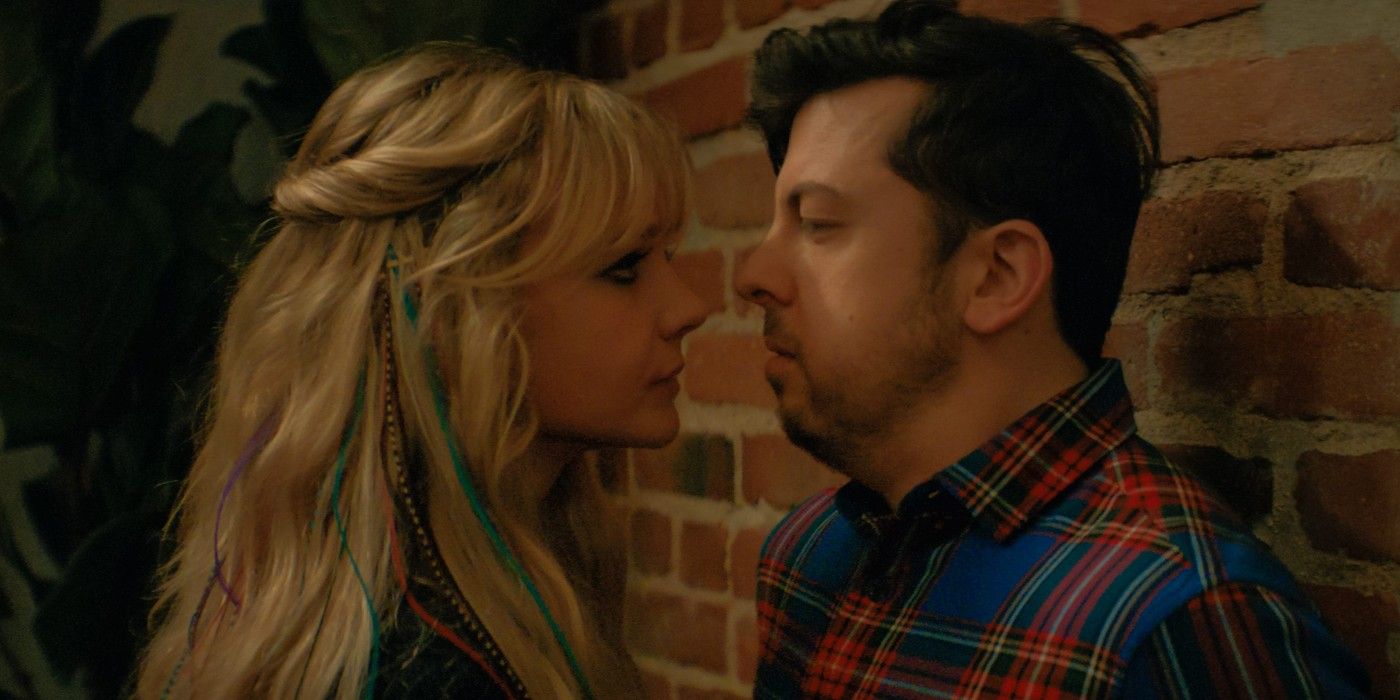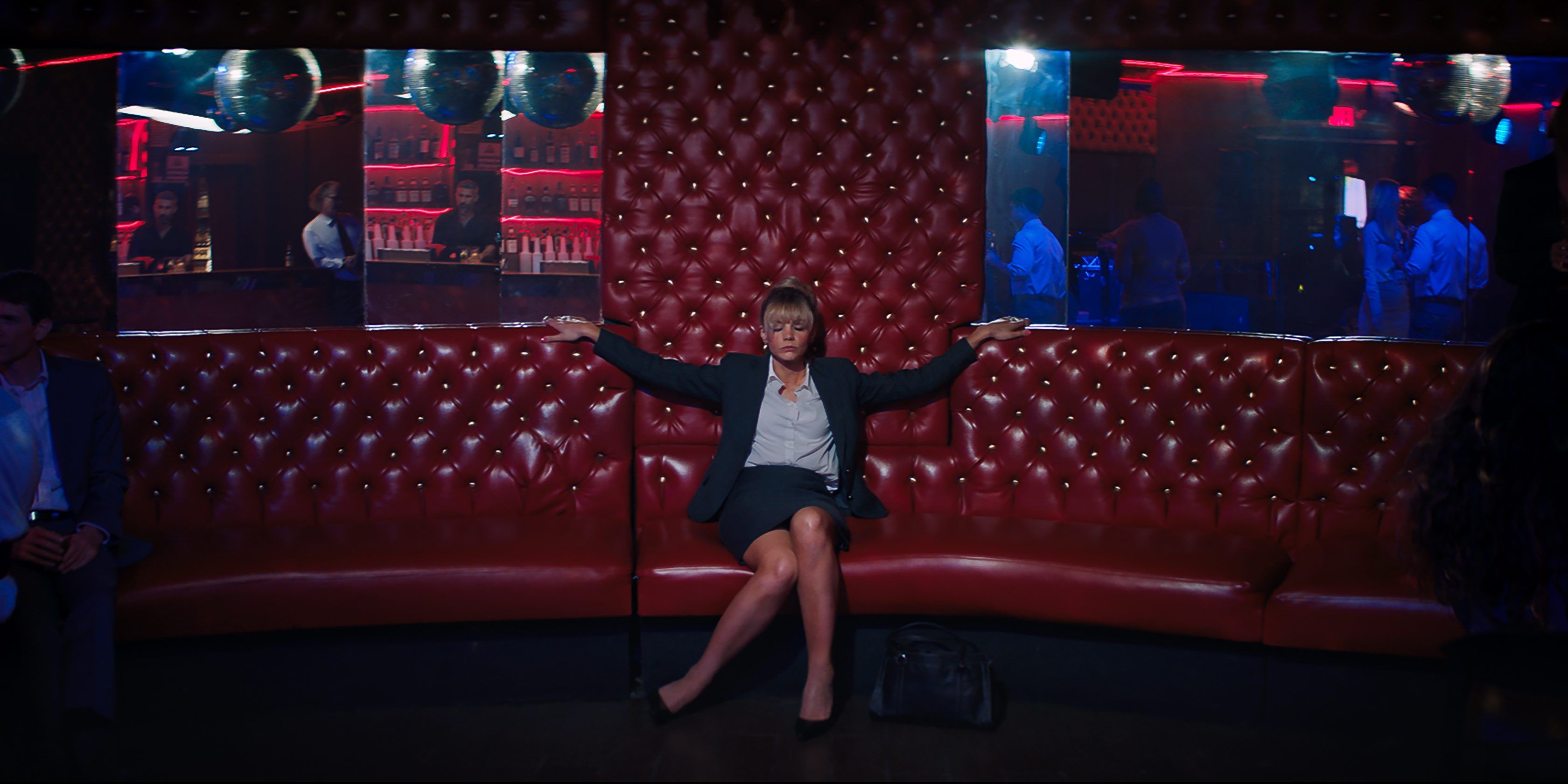The woman behind one of 2020's most fascinating movies knows very well why it might get under peoples' skin. In fact, many of the choices writer and director Emerald Fennell made while working on Promising Young Woman were designed specifically to unnerve the viewer.
In a one-on-one interview with Collider, Fennell talked about the casting choices, which showed actors like Bo Burnham, Chris Lowell, Adam Brody, Max Greenfield, and Christopher Mintz-Plasse at their worst when they come across a seemingly intoxicated Cassie (Carey Mulligan). Below, she also digs into the music choices for the film, and explains her approach to that shocking ending.
[Editor's note: The following contains spoilers for Promising Young Woman.]
COLLIDER: To start off — the thing I couldn't get out of my head while thinking about the film is that Margaret Atwood quote about how men are afraid women will laugh at them, and women are afraid men will kill them. How much was that something that you essentially wanted to hit in some way here?
EMERALD FENNELL: I think certainly, it's a sort of constant concern, especially if you're writing a movie about this sort of thing. It's really interesting when you're writing about when women are vulnerable and consent, all of this sort of thing — what Margaret Atwood explained so deftly there is that it is an impossible imbalance to overcome. It isn't almost impossible. I don't think it is impossible, but there's a physical mismatch that's kind of a worry. Yeah, absolutely.
And so, if I wanted to make a revenge thriller that felt like it was from a real woman's perspective who was acting in a way that I thought maybe a real woman might, a big and important part of that was that I don't believe that women resort to violence very often. Statistically, they don't. In my personal experience, they don't. And there's a reason for that. It's partly because maybe we are less violent by nature. I don't know, but that could be it. But also it's because, and that's a big part of this movie, is that when we do, we don't win.
Yeah. It's so interesting because in the marketing, the knowledge that it's a revenge thriller is there — and then you see her in action and you see that her weapons are shame and humiliation for the people involved. And that just makes a really profound statement.
FENNELL: I think, honestly, so much of this film for me was about what happens when good people, people you think they're good, find out that they're not good. How do we behave? How do people behave? Because this was such a culturally, so normalized, this kind of behavior when I was growing up. There's just nothing in this movie that wasn't the butt of a joke in a Hollywood movie or a TV series. This is something that was just completely endemic and laughed about and that people were expected to kind of just sort of swallow and be cool with and just part of growing up. All of that kind of stuff.
So it's really complicated when something is so commonplace, that necessarily involves lots of people who believe and self-identify as good people. And for me, I was always like, would I rather somebody knocked on my door and punched me in the face, or would I rather they came to my door and said, "I know you think you're a good person, but you're not. And if you let me come in I'm going to show you how you're not." It's all of our worst nightmares. None of us could bear that. So it just seemed so much more powerful to me, and so much more sort of honest to me, I think, than the other, maybe much more cathartic but ultimately, not very honest version.
Something I really want to make sure we talk about is the casting, because not only do you have some great picks against type — like, Jennifer Coolidge, I've never seen in that sort of persona. But there's something very interesting about all of the young men who are cast — a lot of them have played the romantic leads in other TV shows. For you, in terms of approaching that, how conscious were you of bringing that element in?
FENNELL: So conscious, I think it's one of the best things you can do. If we're talking about a problem that is happening among friendship groups, among neighbors, people that know each other quite well, it's important, I think, that the audience has an allegiance with these actors. And also Alison Brie and Connie Britton, I would say too, these actresses that we really respect and like, that's useful because it is sort of a kind of simulation of what it feels like when that happens to someone you like and respect. You find out somebody that you've had a crush on for years has behaved in a slightly, not slightly, completely unacceptable way. I think it's... Yeah. It just makes the whole thing a lot stickier.
But also what was so fantastic was I was asking them to play romantic leads. I said to all of them, "You're in a rom-com. You're the lead. This is just the bit, this is the awkward first one night stand before everyone falls in love. So play this like you're the romantic hero and you just failed to notice that, like in a lot of comedies, she's just not actually saying anything or reacting very much." And I think that's partly what's so kind of troubling about this stuff is that for lots of people, this was just part of this seduction culture. It was something that good people did. It was a loophole. It was a joke. So that's what's so kind of churning to me. And so seeing those brilliant actors play those parts in a different context is much more interesting, I think.
In terms of working with the actors, that's an amazing bit of direction. What was it like, peeling back those layers?
FENNELL: They're all so brilliant. That's the thing that's so thrilling about working with comedians, in particular, is they're really interested in things like shame. Often you'll find that that's something in their work they're often thinking about, talking about. And also, the thing about the people in this movie is that they're not villainous in a sexy way. They're not villainous in a clear-cut cool way. They're villainous in a way that people are villainous, which is that they're lazy and they're callous and they're selfish and they're weak.
So getting comedians... I think comedians have this sort of openness. There's a thing about being a kind of clown almost where you're sort of open — that vulnerability is kind of there. So much of it was just talking about making everyone really comfortable. And then to make sure that people are coming into each scene with their own lives, their own very defined worlds that are being shattered.
I think often what you'll get is a series of interactions where the protagonist will kind of dress down the people. You rarely see the actual moment where somebody realizes they're fucked. And they're not fucked because they're going to have their head cut off. They're fucked because... Their soul is fucked. They fucked themselves, I suppose.
I do want to make sure I ask about the music, just because there are some fantastic song choices throughout and a couple stood out — like Paris Hilton has made music but she's also had this incredibly notorious public life, a lot of it, which featured a form of victimization.
FENNELL: Totally. Yeah. I think in general, the way that this film looks, there's a kind of deliberate subversion of the sort of super feminine, I guess. And also there's this idea that just because you like clothes, just because you paint your nails, just because you listen to Britney Spears, you're not serious, you're not worthwhile, these aren't worthwhile things. And that is a sort of, really sort of dark kind of, misogyny really.
And it applies to things that traditionally young women and queer people like because it sort of diminishes the things that they like. But for me, Paris Hilton's "Stars Are Blind" is one of the greatest pop songs of all time. And Britney Spears is a genius, as much of a genius as Leonard Cohen or any number of brilliant male artists.
That's the thing, for me this stuff is very serious. It's serious to me, the way things look is serious. Women have had to disguise themselves and use the kind of visual signals to keep themselves safe and misdirect. So, it was necessary that the whole film, in general, felt like a misdirection. Felt like, as Cassie does, that she is completely innocuous and innocent and inviting and the butter wouldn't melt in her mouth and all of those things, but she's not. And I hope that's what the film is like too. I hope it is beautiful, but it's also horrific and difficult like a lot of lives are, a lot of women's lives in particular are.
To talk about the ending, my colleague Perri has talked to Carey Mulligan already and in that interview, Carey said she didn't see Cassie's final actions as a suicide mission. So I wanted to get your perspective on this: Where do you think her mind was at?
FENNELL: So I think the thing is, and I sort of hope that it's clear but perhaps it's open to interpretation, but certainly for me, the reason that Cassie does not, has never looked up Al Monroe's name and has avoided looking at that stuff is she knows that she will not be able to control what happens next. She's barely keeping a lid, she's using these nighttime excursions to keep the rage and the horror at bay. But of course, the moment Ryan comes into her life and with all the complicated information that he's bringing, then she's on a different journey and that journey is a lot more personal and she's increasingly less in control of it. And it was always going to be the case that when she sort of saw Al finally she was going to be... It would be the kind of apex of everything she'd felt burning for 10 years.
And so the thing about Cassie is that she's meticulous and she's smart. And she, like I would, like any woman would, knows that if she is going to go to the cabin and she's going to go to the cabin with a weapon — which is something she's never done before — there's going to be a chance that things will go wrong. She has a contingency plan for if it does go wrong, but she's also so angry and so determined to see him and to, and again it's very much an addictive cycle with Cassie. And the thing about the spiral that she's under is that she's, like any addictive spiral, things get faster and faster and closer and closer and the behavior gets more and more extreme. And I think that she kind of has avoided this because she knows it's going to make her likely to make a mistake, and the mistake that she makes is she doesn't tighten the handcuff enough.
But certainly, for me, the way that she fights and the way that she's set out to her kind of revenge, which is, mitigated it, she writes to Jordan, "In case of my disappearance, if something happens." She was never going to go there on a kamikaze mission. That's not at all who she is, but she also has to go there and she knows what the risks are because she's not a fucking idiot. And again, women don't take weapons out with men in rooms because things usually go wrong and that is what happens. For me, so much about this movie was being honest about, what are we saying when we can say to women that you can go out, that there is this kind of very simple, linear, cathartic journey. It's not like that. We all know that the odds are so stacked against us.
And I think that there was, for me certainly, the other ending would have been Cassie murders everyone and then goes to jail for the rest of her life and lives with that horror. There was no happy ending to this movie. All there is, is somebody who needs to show people, to deliver justice. And she does do that, but at a very, very heavy price. I didn't believe that a woman of Cassie's size would be able to physically overpower a very strong man. All of that stuff. And it was important that it interrogated the myth of the revenge journey.
Promising Young Woman is available now on VOD.




